UK’s first women-only residential treatment for gamblers offers hope
- Published
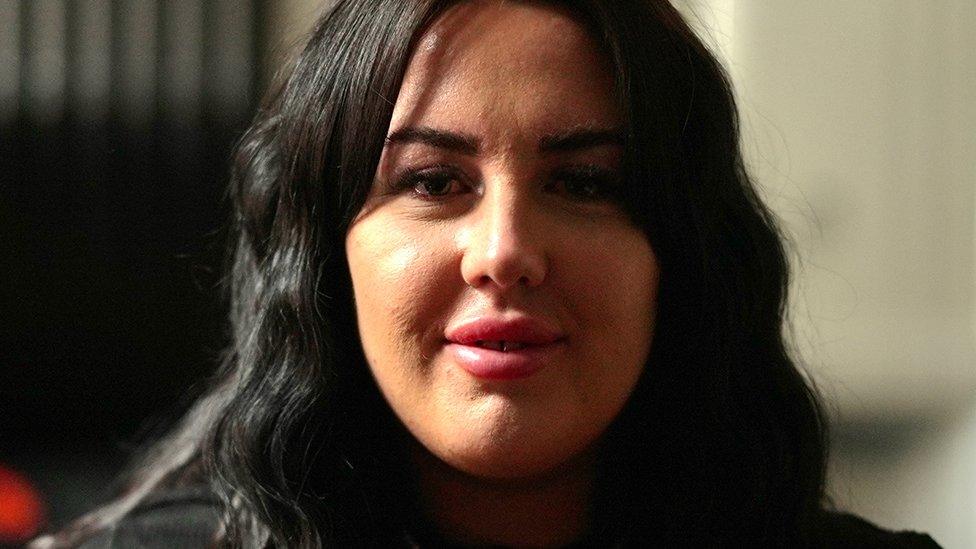
Rebecca was 19 and a young mum when she first developed a gambling habit
"I remember just getting scratch-cards, winning, losing, opening more and more accounts online - and before I knew it, I was a gambling addict," says 28-year-old Rebecca, whose gambling began when she was struggling with post-natal depression.
After the scratch cards, Rebecca started betting on horses, even though she knew nothing about racing. "I was looking for this dopamine hit - that side of my brain was going: gamble, gamble, gamble," she says.
Last summer, Rebecca spent five weeks at the UK's first women-only residential gambling centre, where addicts who have hit rock-bottom get a chance to turn their lives around.
The BBC was given exclusive access to the centre - an unassuming terraced house in Birmingham.
Rebecca says it was upsetting to be away from her children for so long, but since leaving the clinic she hasn't gambled, and she is feeling positive about the future. She says relapsing "isn't an option".
Letter of desperation
Like Rebecca, gambling completely took over 34-year-old Caroline's life. She once spent £30,000 online in three months.
She would stay up gambling in her bedroom until the early hours of the morning.
"You've got no concept of time. You isolate yourself," she says. "It was the lowest point of my life, because everything around me, I was destroying."
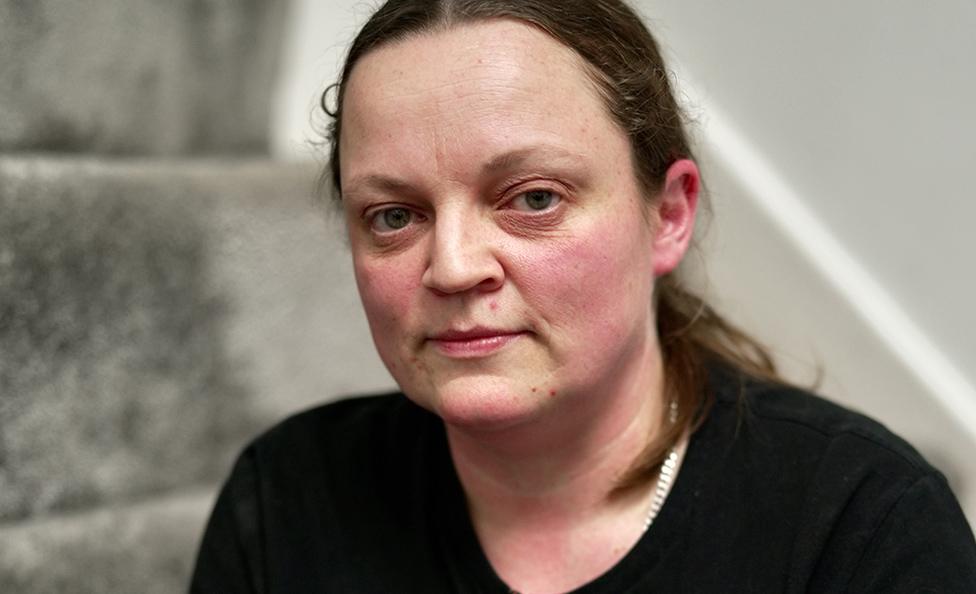
Caroline says she lost all sense of time when she was gambling
Before getting treatment at the clinic last October, things got so bad that she contemplated ending her life. It's clearly still painful to talk about, but she wants to share her story in the hope it might help others.
"I felt that the only way was to not be here," Caroline says. "Life would be easier for everybody. It would be cheaper for everybody."
She chokes up when she tells me that she sat in her car last May and wrote a final letter to her parents - until she had a change of heart.
"It wasn't worth taking that way out because I knew I could get better if the help was there - I keep that letter as a reminder to myself now."
A safe space
The treatment centre is in central Birmingham. As you walk through the door of the terraced house, you're immediately greeted with a poster full of messages of support, written by women who've been through the programme themselves.
One message reads simply: "This place saved my life."
Artwork and messages of positivity decorate every surface - even inside kitchen cupboards.
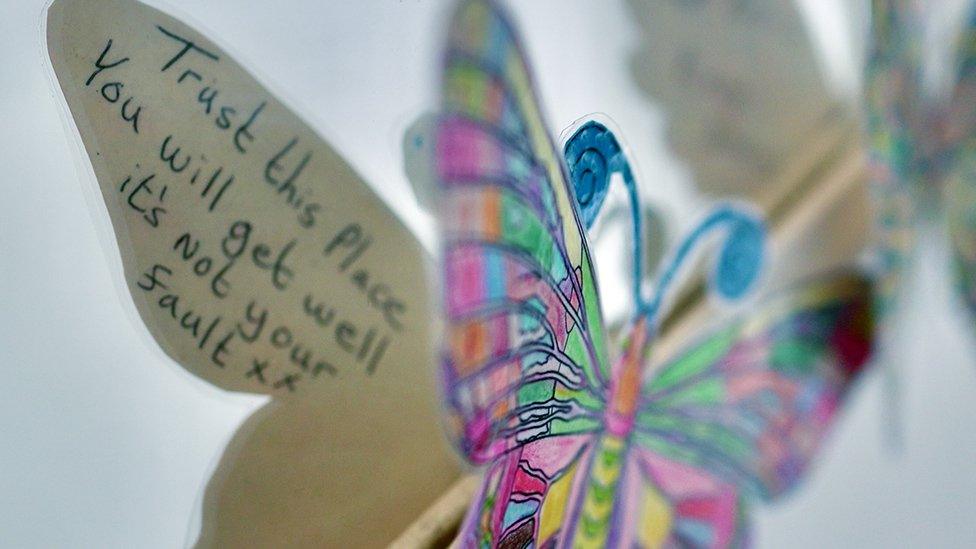
Artwork made by residents with positive messages decorates the house
The place feels homely, with comforting touches. Each resident is welcomed with a letter written by the woman who last stayed in their room.
The clinic is run by the charity Gordon Moody, and this is the first time they've allowed the media in since opening towards the end of 2021.
In that time the number of women applying for treatment at the clinic has more than doubled, from 77 in the first year to 210 at the end of March this year.
Women can refer themselves to the centre, or it can be done by a health professional or another gambling organisation.
The centre's manager, Harp Edwards, says the women who are treated here are at the "top level" of need, because they may be self-harming or feeling suicidal.
"They feel like it's the last straw for them, so coming into treatment is kind of like their last option," she says.
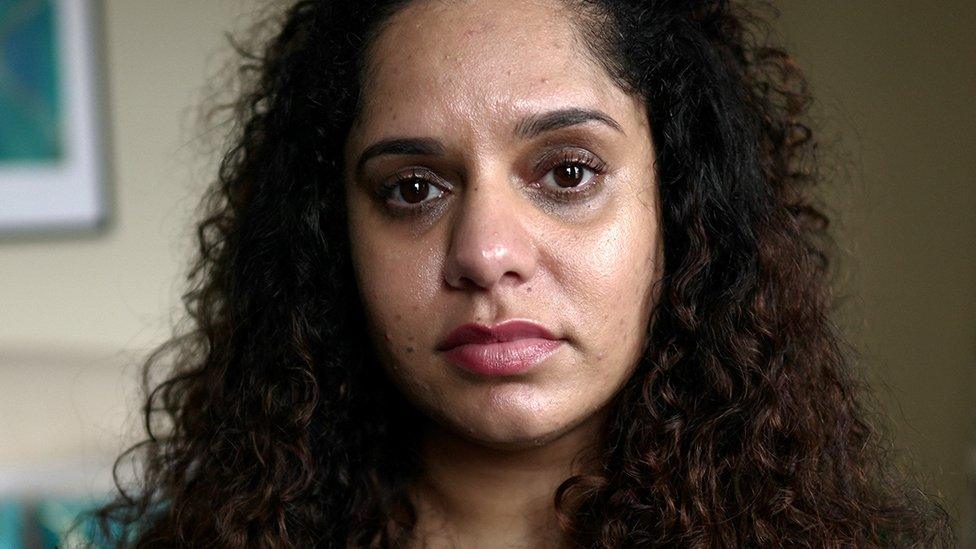
Centre manager Harp Edwards says all the women who attend have helped to shape the programme
During their stay, the women have limited access to phones, money and any online services, so that they can't gamble. But the centre also limits the women's exposure to their daily lives, "so all the stresses of the outside world are kind of gone", says Edwards.
The residential programme has been designed around women's needs.
"I think the importance of having a female-only treatment is that it allows a woman to be in a safe space and focus on women-only issues as well," Edwards says.

Information and support
If you or someone you know needs support these these organisations might be able to help you

The stay for women is shorter - just five weeks compared with 14 weeks for men - because they often have children to care for. And Edwards says there are other differences too, for example women want to focus more on what personal experiences may have led to their gambling, and how it affects their relationships.
"Men tend to talk about the gambling first before we look at trauma, whereas women go straight in with the impact that gambling might have had on them," she says.
The intensive five-week programme involves daily therapy and psycho-educational sessions, as well as creative workshops, where the women are encouraged to express their feelings.
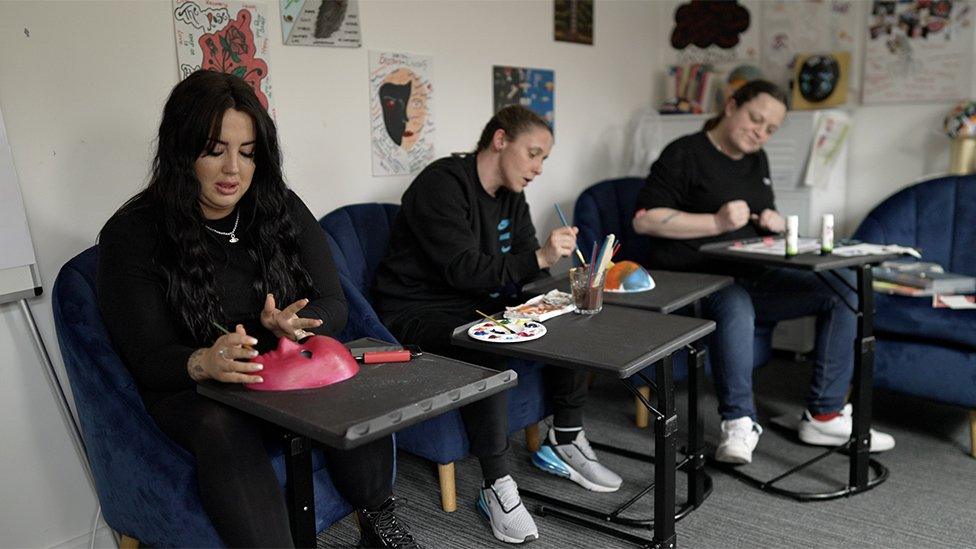
In a craft workshop Rebecca, Caroline and Elissa paint masks with contrasting gambling and gamble-free faces
Elissa, 36, admits she didn't get involved in the workshops when she first arrived, saying she was too "rigid" - now she jokes that she's "not rigid, just rubbish" at the crafts.
She tells me she started gambling on slot machines in arcades when she was just nine years old.
She managed to keep it a secret from her friends and family for years, but things really escalated when she started gambling online at all times of day - even at work.
"In between every job I would be gambling. If I was on call at work, I'd be gambling," Elissa says.
"I'd be coming home from work, gambling before the kids or me missus came home. I started taking my phone into the bathroom with me when I was having a bath, things like that."
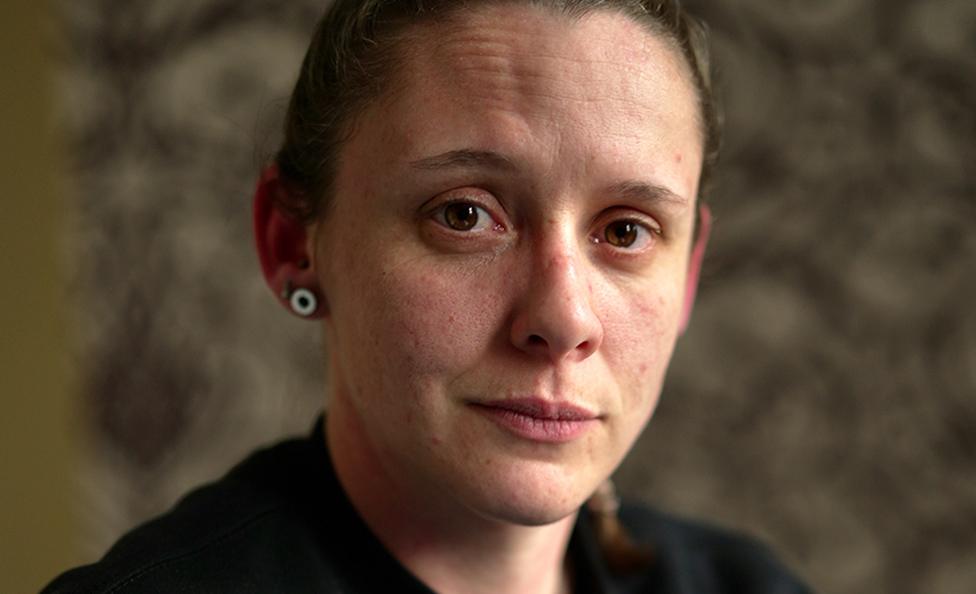
Elissa says she kept her gambling secret for years
Since leaving the centre, Elissa has moved to a different part of the country, and is now training to run gambling recovery groups herself.
Tighter regulations?
An estimated 22 million people gamble each month in the UK. The numbers of women receiving support for gambling addiction has more than doubled in five years, with 1,134 women receiving treatment in 2015-16 and 2,423 in 2020-21, according to figures from the charity GambleAware.
Elissa, Caroline and Rebecca all feel that more regulation is needed in the gambling sector, as well as more treatment programmes like this one - which are largely paid for by the gambling industry. But Rebecca questions the motive behind this funding.
"Do they do it because they have general concerns for their customers that are spending thousands and thousands of pounds on their website?" she asks. "Or do they have to put that in place because that's the law?"
The Betting and Gaming Council - which represents the industry in the UK - told the BBC in a statement: "We are encouraged by the latest figures from the independent regulator, the Gambling Commission, which show the rates of problem gambling among UK women is 0.1% - down from 0.2% the previous year."
They added that the industry will donate £110m by next year to tackle harmful gambling, and that advertising and sponsorship must comply with strict guidelines.
The house in Birmingham is a temporary base for the clinic, which is moving to a more permanent and bigger site in Wolverhampton later in the year. Then it will be able to accommodate three more women on each programme - at the moment it can just take five at a time.
They'll also have recovery beds for people who need to stay longer at the end of their treatment.
It means they'll be able to help more women like Rebecca, Elissa and Caroline, who credit the clinic with changing their lives for the better.
"Thank you for everything," Elissa tells the staff. "You've taught me how to love myself."
Photography by Dave Bull
Related topics
- Published21 February 2023
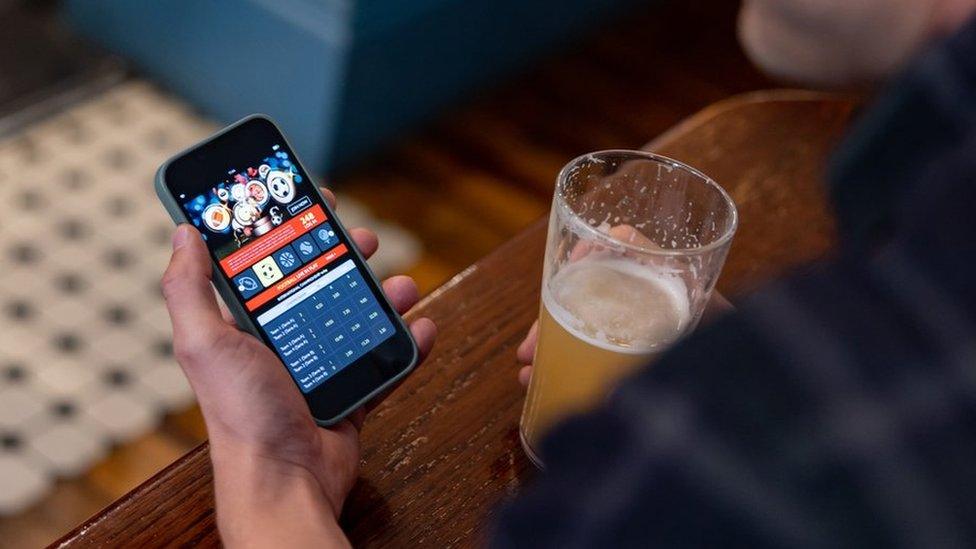
- Published31 January 2022
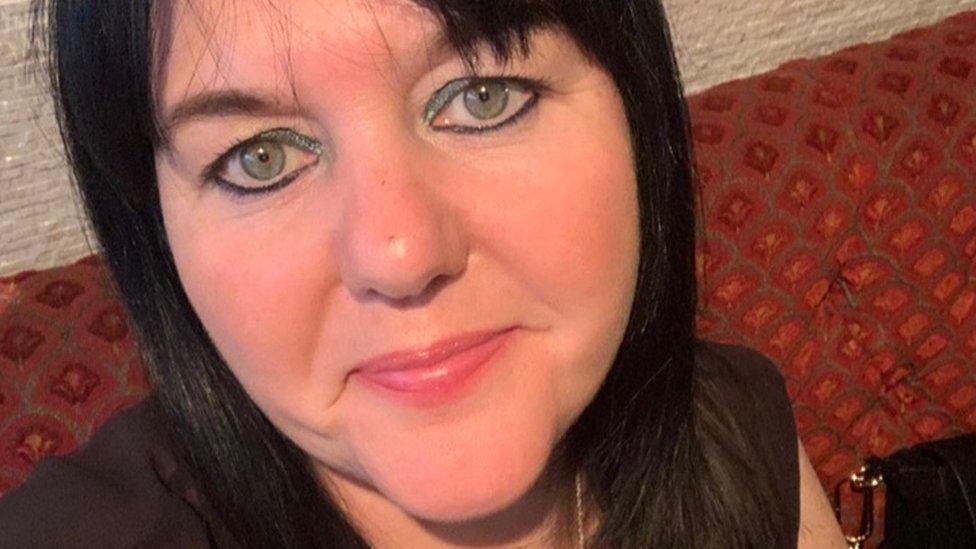
- Published7 May 2021
